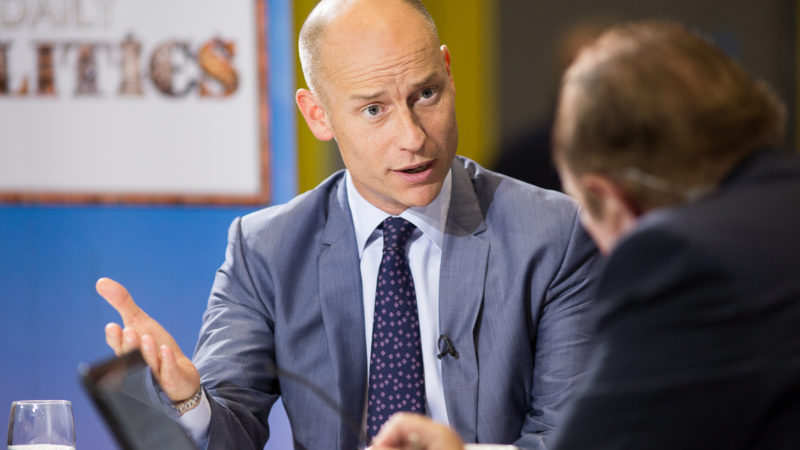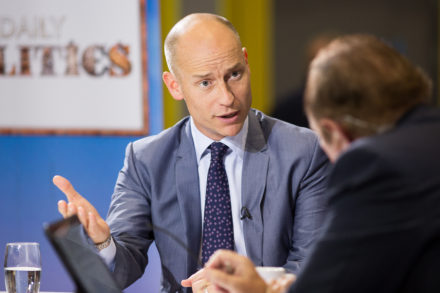

I’ve been around politics for as long as I can remember, and I joined the Labour Party in 1985, when I was 15 years old. It’s fair to say that as a party we’ve been through some tough and bruising times, and I’ve had a ring-side seat for much of it. But I have never been as stunned or disappointed by the response to my use of the word “assimilation”, that I used during a Progress panel on Monday evening.
For me, assimilation is synonymous with integration. Both words describe the process of people from different backgrounds and cultures embarking together in an entirely positive journey of mutual learning, respect and understanding. If that journey happens to be taking place in the UK, then the over-arching umbrella of values and lived experiences that shape and guide it will be British.
Assimilation emphatically does *not* involve surrendering one’s own culture, values or identity. I would never dream of suggesting that, but judging by the response my comments received, it unfortunately seems that’s what some people think I meant.
To assimilate or integrate successfully you throw yourself into the melting pot, and, through the magic of human exchange and empathy, you emerge a stronger, more resilient and more interesting person.
My first experience of this was at Drayton Manor High School in Hanwell, west London, where I spent my teenage years. It was a local comprehensive in every sense of the word, made up of kids from just about every ethnic, cultural and socio-economic background you can think of. I knocked around with a group of about ten close friends, and white faces were in the minority. As well as having a laugh, we learnt from each other’s cultures and experiences, challenged each other in our thinking, and everyone brought something different and special to the table. It wasn’t always easy, but each of us, I believe, emerged much better and more interesting people for it.
Why? Because we all assimilated to each other. Or maybe we all integrated? Whatever, the bottom line is that we all threw ourselves into that melting pot, and we cooked up something special. There was no losing of the identities and cultures we had begun with, there was only strengthening.
It was that fusion of backgrounds and identities that I experienced at my school that make me believe we have to move away from multiculturalism, and towards assimilation. By which I mean this: In a purely multi-cultural society we stand off each other, we don’t engage. In a positive, naturally assimilated society we are mutually reinforcing, with our diverse cultures, ethnicities, experiences and identities enhancing each other, making us so much more than the sum of our component parts.
From Drayton I went on to university where I studied French and Spanish, and from there I had the privilege of living and working in a number of different countries, and the pleasure of meeting and marrying a Dane, and of managing to pick up a few additional languages on the way. In each and every one of the countries in which I lived I did my level best to assimilate by embracing the local language and culture. Did I at any point along the way stop being British? No. Did I at any point in those assimilations feel that I was losing my own identity, culture or customs? Absolutely not. In fact, my experiences living and working internationally consistently strengthened my sense of Britishness, and deepened my patriotic pride in this country that I love.
So, all of those experiences make me believe that rather than focusing on what differentiates us from each other, we should instead be starting with what we have in common, while still celebrating and cherishing the uniqueness that each of us bring to the relationship. Our starting point is our Britishness, but never forgetting that Britishness is not, and should never be, a monolithic culture and identity. Our Britishness must, rather, be founded on an inclusive and evolving vision of what brings people from every single walk of life together.
I was therefore profoundly shocked when people suggested that when I said we should stand for one group: the “British people” I meant standing for only white people. That would simply never even cross my mind as a definition of the British people, which I have always seen for what it is: as a patchwork of different lives, experiences, cultures and ethnicities that are inextricably, compellingly and beautifully interwoven.
The strength of the reaction to my comments is a stark illustration of the gaping hole at the heart of this debate, which is the lack of a shared language. So, I said one thing, and some people heard something completely different. But despite the furore, I do not for a moment regret making the argument, because it is a conversation that we in the Labour party so clearly need to have.
The fact of the matter is that there is a chasm between our Party and huge numbers of people across the country: people who believe Labour doesn’t listen or give voice to them, or even worse dismisses them as a source of oppression of others. They see us – successfully and importantly – defending and promoting the rights of different groups in society, but experience us seemingly ignoring them. They think that we are obsessed with the process of segmenting, dividing and defining certain groups according to background, and to their disadvantage. I fully recognise and accept that this perception may not be entirely fair, or accurate. But the fact is that it is there, and it is becoming more rooted and difficult to shift with every day that passes. As the referendum and the rise of Trump have shown – in twenty-first century politics, perception is reality.
The lesson is: if you do your politics purely group by group, then you better make sure you include every group, otherwise you exclude people – with deeply damaging consequences.
As things stand, Labour has lost the permission to be heard by millions of people across the length and breadth of our country because they feel that we do not prioritise being British. People want a country in which every single citizen embraces a sense of shared identity and common purpose. Therefore the defining challenge now, for our Party, is to convince those people (who truly should be our people) that we place the security and prosperity of every community, regardless of background, on equal footing.
We will never stop fighting for social progress and the rights for all communities, or celebrating the richness that is created by the UK’s many different communities. But we must speak just as much for the majority as we do for minorities, which in turn means we have to start with a confidently patriotic vision of Britain that is truly inclusive of all – in which everyone believes they have a future and a voice. It means that we focus on that which we have in common, on the ties that bind and make us, no matter our background, British. It means finding language, policies and approaches that speak to our common challenges, worries and hopes. Because it is only through this type of truly inclusive and broad-based politics – with assimilation and integration at its core – that we can build a society in which the connections we have to each other are strengthened.
Failure to approach our politics like this will not only consign us to electoral irrelevance for a generation, it will also allow the likes of UKIP and the hard right of the Conservative Party to continue stepping into the vacuum that we are leaving for them. And we know that they will continue to wreak havoc with our country by sowing the seeds of division, suspicion and despair.
The Labour Party is the greatest force for good that our country has ever seen. We have given voice to the voiceless, and we have spoken truth to power. But the world in which we live is more challenging than ever for our politics and the fact – as shown by this experience – that we don’t have a shared language is preventing us from fully having the hard conversation we need to. And this is particularly the case on issues as sensitive and important as immigration and identity.
I regret that for some the message I had intended to convey was lost in translation (accelerated by the limitations of a tweet!). But I do not regret for an instant making the argument that Labour must start urgently promoting an inclusive, patriotic vision of what it means to be British. Because it is only by doing so that we will succeed in getting ourselves onto the long road back to re-gaining the trust of the British people.




More from LabourList
‘What Batley and Spen taught me about standing up to divisive politics’
‘Security in the 21st century means more than just defence’
‘Better the devil you know’: what Gorton and Denton voters say about by-election